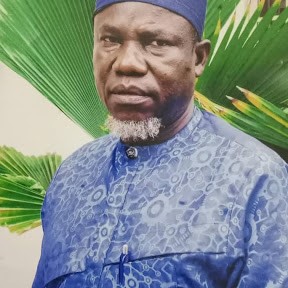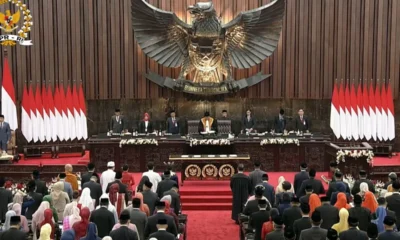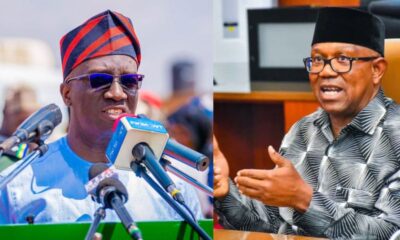Africa
Oratory Is Not Governance: Why Nigeria Needs Problem-Solvers, Not Just Eloquence -By Isaac Asabor
Let us also remember that governance is not entertainment. The Nigerian people are not an audience waiting to be wowed; they are citizens demanding services. Electricity, security, employment, roads, healthcare, these are not provided with microphones and soundbites. They require action, collaboration, and diligent oversight.

Since Nigeria’s return to democratic governance in 1999, one striking feature among its political class has been the abundance of oratorically gifted leaders. From the passionate rhetoric of politicians on campaign trails to well-crafted speeches echoing across parliaments and media platforms, Nigeria has never been short of men and women who can speak impressively. But more often than not, this flair for eloquence fails to translate into competent leadership. The phrase “Oratory is not governance” is not just a catchy line, it is a sobering reminder that the ability to mesmerize with words is not the same as the ability to govern effectively.
There is no doubt that oratory plays an important role in leadership. A good speech can inspire, mobilize, and communicate a vision. It can influence public opinion, build momentum for reforms, and offer reassurance in times of crisis. But Nigeria’s political history has shown time and again that an eloquent speaker is not necessarily a good leader. A nation in search of development must go beyond talk. Nigeria does not suffer from a shortage of fine words. It suffers from a shortage of results.
Let us get the definitions right. Oratory is the art of persuasive public speaking. It focuses on words, delivery, and audience impact. It is largely performative and emotional. Governance, on the other hand, is the actual process of managing the affairs of a society. It includes planning, decision-making, policy formulation, implementation, crisis management, and administrative competence. Governance is a full-time job of service delivery. It is action-oriented, strategic, and often thankless. When the lights go off and the applause fades, governance is what remains.
Since 1999, Nigerians have been treated to brilliant political speeches that ultimately did little to change the lived realities of the people. The return of democracy brought with it a flood of campaign promises often anchored on fiery rhetoric. Whether it was “transformation agenda,” “fresh air,” “change,” or “renewed hope,” each administration had its own language of persuasion. But for millions of Nigerians, these words have amounted to little more than empty slogans.
The streets of Lagos, Kano, Port Harcourt, Enugu, and other major cities still reel under infrastructural decay, traffic chaos, and insecurity. Rural communities remain neglected. Education and healthcare systems are underfunded and mismanaged. The economy, which politicians promise to fix with every new tenure, has consistently failed to meet the expectations of ordinary citizens. Yet, the leaders at the helm often give excellent speeches explaining why things have not worked, ironically with flawless grammar and commanding presence.
The implication here is clear: we must begin to prioritize competence over performance. Governance demands people who are not just able to talk but are able to think critically, act decisively, and solve problems practically. Those in positions to appoint leaders, whether as ministers, advisers, heads of agencies, or even local administrators, must resist the temptation to be swayed by eloquence alone. The question should not be, “Can he speak well?” but rather, “Can he deliver results?”
Leadership is not a debate competition. Governance is not about scoring rhetorical points. What we need are problem-solvers, people with knowledge, technical expertise, and the courage to make tough decisions, even when such decisions are unpopular. A good orator can rally a crowd, but that does not mean he can run a government. Being articulate does not mean one is analytically sound or administratively competent. Too often in Nigeria, leadership selections are made based on how well someone can ‘sell’ an idea, forgetting that execution is where most governments fail.
Let us be clear: this is not an argument against oratory. It is an argument against mistaking it for governance. A blend of both is ideal. Great leaders throughout history, like Nelson Mandela, Barack Obama, and even our own Nnamdi Azikiwe, possessed both eloquence and executive capacity. But if forced to choose, a silent doer is far better than a loud failure.
Consider a practical example. A state governor may give an inspiring speech on education reform. He may quote statistics and promise to revamp public schools. But if he fails to ensure timely teacher salaries, provide adequate classroom infrastructure, and implement curriculum reforms, then the speech was nothing more than verbal gymnastics. On the flip side, a leader who may not speak Queen’s English but ensures classrooms are built, teachers are paid, and children are learning effectively is a better governor any day.
In recent times, Nigerians have begun to question this unhealthy obsession with ‘packaging’ and presentation. The rise of social media has exposed the gap between appearance and reality. We have seen lawmakers who cannot articulate basic legislative ideas yet occupy sensitive national positions. We have seen appointees who look the part and speak the part but contribute nothing meaningful to public service.
This culture must change. For the sake of national progress, we must begin to value substance over style. Appointive positions in government should be filled with men and women of proven capacity, not those who merely speak with flair. Nigeria is a complex country with complex problems. It needs technocrats, innovators, crisis managers, and forward-thinking planners, not just speechmakers.
Furthermore, public institutions should develop transparent criteria for leadership appointments. Emphasis should be placed on track records, educational qualifications relevant to the role, professional achievements, and integrity. Oratory should be considered a bonus, not the basis of suitability.
Let us also remember that governance is not entertainment. The Nigerian people are not an audience waiting to be wowed; they are citizens demanding services. Electricity, security, employment, roads, healthcare, these are not provided with microphones and soundbites. They require action, collaboration, and diligent oversight.
In conclusion, while we must not entirely dismiss the importance of oratory in leadership, we must never elevate it above the capacity to govern. The future of Nigeria lies not in how well our leaders speak, but in how well they lead. The next time we consider who should lead, whether at the local, state, or federal level, we must ask: Can this person solve problems? Can this person deliver? Can this person govern? If the answer is no, then no amount of fine speaking should get them near public office.


























